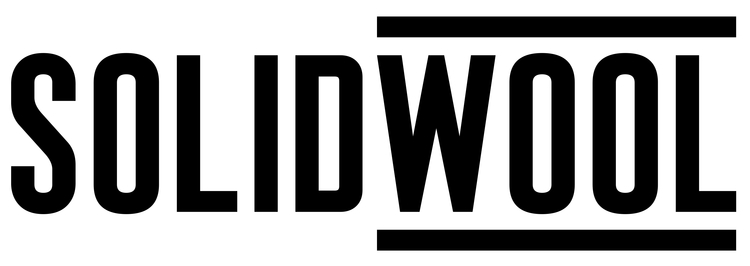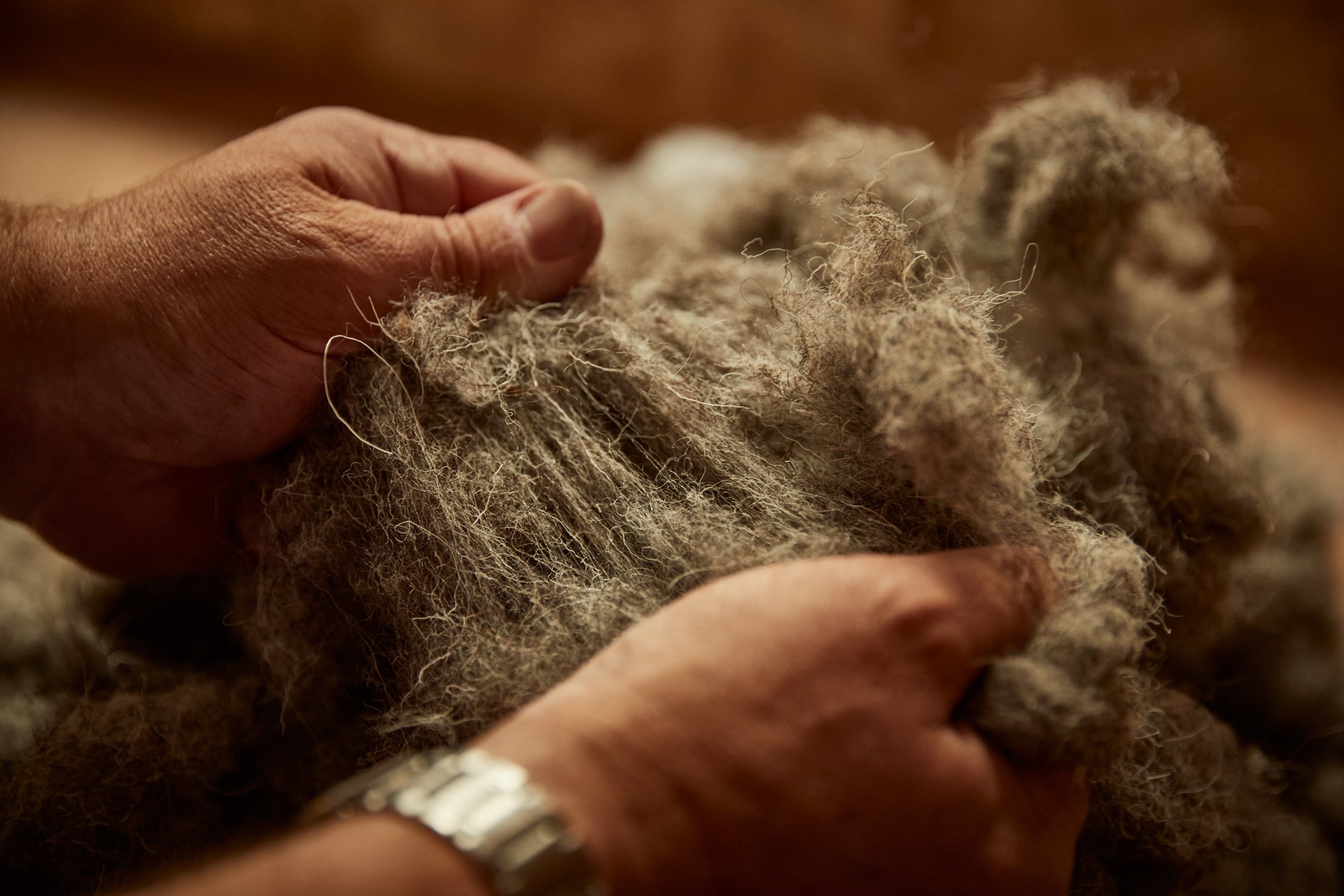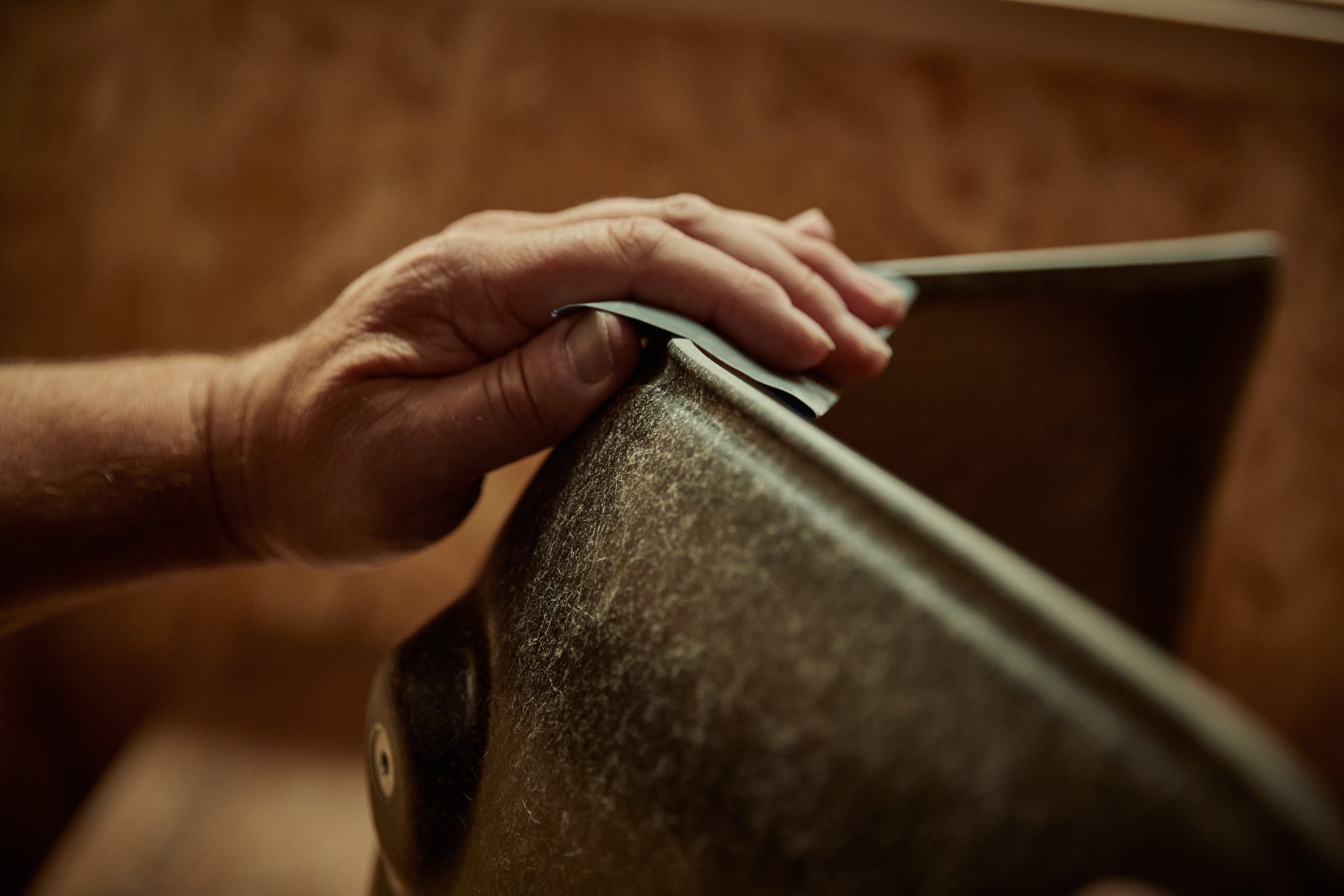Visual Tactility
‘When you see the material, it draws you in. You can’t help but want to touch it. Your eyes see the texture, yet your hands feel the smoothness.’
About Solidwool Material
A unique, composite material. A new way of working with wool.
We've been fine tuning the material and manufacturing process for a good few years now. Wool is used as the reinforcement, bio-resin as the binder - it’s 50% wool and 50% bio-resin.
Our goal is to make Solidwool the most natural, lowest impact and highest quality wool composite material out there. We want Solidwool to be considered as a sustainable alternative to today's petrochemical based structural reinforced plastics and composites.
But more than that, we want to create a beautiful natural material with a story that connects people to the land it has come from.
Wool
Wool is a sustainable resource. Not renewable. Sheep need fuel too. However the fleeces we use are plentiful. We use wool from upland, hill-farmed sheep, historically used in the UK carpet industry. Demand for this wool has declined and is considered almost worthless, a by-product of sheep farming.
By using traditional, hardy breeds we are supporting British farms and reducing the carbon footprint of our product. In addition to reducing our carbon footprint, when buying British wool you are keeping traditional skills and craftsmanship alive.
Herdwick
We have focused on using wool from Herdwick sheep, the iconic breed of the British Lake District. This wool is wiry, dark and coarse. Regarded as the most hardy of all British breeds, they roam the high fells for most of the year, naturally hefting themselves to the land. This sense of place removes the need for walls high on the open fells with their instinct keeping them rooted to the place they have always lived. It is believed that up to 99% of all Herdwick sheep are farmed in the central and western Lake District, with 95% of the breed found within 14 miles of Coniston, Cumbria. That's provenance right there. This wool is something special, but along the way, something has gone wrong and its perceived value has been lost. It is currently one of the lowest value wools in the UK.
When used in Solidwool, Herdwick wool is beautiful, producing a dark grey composite with the lighter guard hairs standing out.
Welsh Mountain
Welsh Mountain is a hardy, British breed that still roam the rugged hillsides of Wales today as they did centuries ago. Using this close-textured wool from both the white and black Welsh Mountain sheep, the multicoloured white, grey-brown and black kemp reveals a distinctive veining throughout the composite. This creates a striking marbled effect, showcasing the unique layering of textures and tones found in this incredible wool.
Bio-resin
In order to make Solidwool, we combine the wool with bio-resin in a unique manufacturing process we have developed.
Traditionally the resins used in composites manufacture are 100% petrochemical and have varying levels of toxicity. They have a large carbon footprint and emit potentially harmful toxins during use. It stands to reason that these resins are not pleasant to work with.
The resins we currently use are classed as bio-resins. They have a 50% bio-based renewable content. Sourced from waste streams of other industrial processes, such as wood pulp and bio-fuels production, our environmentally conscientious resin manufacturer claims a 33% reduction in Carbon Footprint and Greenhouse Gas Emissions during manufacture over traditional resins. Plus their green chemistry eliminates those harmful toxins, making it a more pleasant resin for us to work with.
These materials do not compete with food sources or displace food-based agriculture. The resins allow for strong and durable composites with a lower environmental impact. Better still, our work on how to increase the amount of bio content within our resin means we use nearly twice as much than our previous chair. That doesn’t mean we’re going to sit back and relax, we’re constantly looking to evolve and improve how we can be even better to our environment.
About Solidwool Furniture
Every chair (and table) is made in Devon using Herdwick or Welsh Mountain wool. Moulded, but with all edges finished by hand.
UK sourced Ash legs are hand-turned to our design by Roger in Somerset. Raw or black scorched, oiled to finish.
Black powder-coated recycled steel frames made in Peterborough. We also offer a steel stacking leg option in black or chrome.
Each chair assembled by hand, individually inspected and given a unique identification number.







